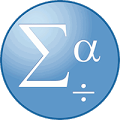
SPSS Statistics is a statistical software suite developed by IBM for data management, advanced analytics, multivariate analysis, business intelligence, and criminal investigation. Long produced by SPSS Inc., it was acquired by IBM in 2009. Versions of the software released since 2015 have the brand name IBM SPSS Statistics.

Multimethodology or multimethod research includes the use of more than one method of data collection or research in a research study or set of related studies. Mixed methods research is more specific in that it includes the mixing of qualitative and quantitative data, methods, methodologies, and/or paradigms in a research study or set of related studies. One could argue that mixed methods research is a special case of multimethod research. Another applicable, but less often used label, for multi or mixed research is methodological pluralism. All of these approaches to professional and academic research emphasize that monomethod research can be improved through the use of multiple data sources, methods, research methodologies, perspectives, standpoints, and paradigms.

Qualitative research is a type of research that aims to gather and analyse non-numerical (descriptive) data in order to gain an understanding of individuals' social reality, including understanding their attitudes, beliefs, and motivation. This type of research typically involves in-depth interviews, focus groups, or observations in order to collect data that is rich in detail and context. Qualitative research is often used to explore complex phenomena or to gain insight into people's experiences and perspectives on a particular topic. It is particularly useful when researchers want to understand the meaning that people attach to their experiences or when they want to uncover the underlying reasons for people's behavior. Qualitative methods include ethnography, grounded theory, discourse analysis, and interpretative phenomenological analysis. Qualitative research methods have been used in sociology, anthropology, political science, psychology, communication studies, social work, folklore, educational research, information science and software engineering research.

Quantitative research is a research strategy that focuses on quantifying the collection and analysis of data. It is formed from a deductive approach where emphasis is placed on the testing of theory, shaped by empiricist and positivist philosophies.

Content analysis is the study of documents and communication artifacts, which might be texts of various formats, pictures, audio or video. Social scientists use content analysis to examine patterns in communication in a replicable and systematic manner. One of the key advantages of using content analysis to analyse social phenomena is their non-invasive nature, in contrast to simulating social experiences or collecting survey answers.

Epi Info is statistical software for epidemiology developed by Centers for Disease Control and Prevention (CDC) in Atlanta, Georgia (US).
ATLAS.ti is a computer-assisted qualitative data analysis software that facilitates analysis of qualitative data for qualitative research, quantitative research, and mixed methods research.
In the social sciences, coding is an analytical process in which data, in both quantitative form or qualitative form are categorized to facilitate analysis.
Computer-assistedqualitative data analysis software (CAQDAS) offers tools that assist with qualitative research such as transcription analysis, coding and text interpretation, recursive abstraction, content analysis, discourse analysis, grounded theory methodology, etc.
QSR International is a qualitative research software developer based in Burlington, Massachusetts, with offices in Australia, Germany, New Zealand, and the United Kingdom. QSR International is the developer of qualitative data analysis (QDA) software products, NVivo, NVivo Server, Interpris and XSight. These are designed to help qualitative researchers organize and analyze non-numerical or unstructured data.
Aquad is open source computer-assisted qualitative data analysis software (CAQDAS). It supports analysis of text, audio, video, and graphical data.
QDA Miner is mixed methods and qualitative data analysis software developed by Provalis Research. The program was designed to assist researchers in managing, coding and analyzing qualitative data.
Thematic analysis is one of the most common forms of analysis within qualitative research. It emphasizes identifying, analysing and interpreting patterns of meaning within qualitative data. Thematic analysis is often understood as a method or technique in contrast to most other qualitative analytic approaches – such as grounded theory, discourse analysis, narrative analysis and interpretative phenomenological analysis – which can be described as methodologies or theoretically informed frameworks for research. Thematic analysis is best thought of as an umbrella term for a variety of different approaches, rather than a singular method. Different versions of thematic analysis are underpinned by different philosophical and conceptual assumptions and are divergent in terms of procedure. Leading thematic analysis proponents, psychologists Virginia Braun and Victoria Clarke distinguish between three main types of thematic analysis: coding reliability approaches, code book approaches and reflexive approaches. They describe their own widely used approach first outlined in 2006 in the journal Qualitative Research in Psychology as reflexive thematic analysis. Their 2006 paper has over 120,000 Google Scholar citations and according to Google Scholar is the most cited academic paper published in 2006. The popularity of this paper exemplifies the growing interest in thematic analysis as a distinct method.

JASP is a free and open-source program for statistical analysis supported by the University of Amsterdam. It is designed to be easy to use, and familiar to users of SPSS. It offers standard analysis procedures in both their classical and Bayesian form. JASP generally produces APA style results tables and plots to ease publication. It promotes open science via integration with the Open Science Framework and reproducibility by integrating the analysis settings into the results. The development of JASP is financially supported by several universities and research funds. As the JASP GUI is developed in C++ using Qt framework, some of the team left to make a notable fork which is Jamovi which has its GUI developed in JavaScript and HTML5.
Quantitative Discourse Analysis Package (qdap) is an R package for computer assisted qualitative data analysis, particularly quantitative discourse analysis, transcript analysis and natural language processing. Qdap is installable from, and runs within, the R system.
Cassandre is a free open source software for computer assisted qualitative data analysis and interpretation in humanities and social sciences. Although it refers, like other CAQDAS-software, to Grounded Theory Method, it also allows to conduct discourse analysis or quantitative content analysis. The software is designed as a server to support collaborative work. Formerly focused on semi-automatic coding, it now provides diaries assisting qualitative analysis.

KH Coder is an open source software for computer assisted qualitative data analysis, particularly quantitative content analysis and text mining. It can be also used for computational linguistics. It supports processing and etymological information of text in several languages, such as Japanese, English, French, German, Italian, Portuguese and Spanish. Specifically, it can contribute factual examination co-event system hub structure, computerized arranging guide, multidimensional scaling and comparative calculations. Word frequency statistics, part-of-speech analysis, grouping, correlation analysis, and visualization are among the features offered by KH Coder.

Quirkos is a CAQDAS software package for the qualitative analysis of text data, commonly used in social science. It provides a graphical interface in which the nodes or themes of analysis are represented by bubbles. It is designed primarily for new and non-academic users of qualitative data, to allow them to quickly learn the basics of qualitative data analysis. Although simpler to use, it lacks some of the features present in other commercial CAQDAS packages such as multimedia support. However, it has been proposed as a useful tool for lay and participant led analysis and is comparatively affordable. It is developed by Edinburgh, UK based Quirkos Software, and was first released in October 2014.

Imputation and Variance Estimation Software (IVEware) is a collection of routines written under various platforms and packaged to perform multiple imputations, variance estimation and, in general, draw inferences from incomplete data. It can also be used to perform analysis without any missing data. IVEware defaults to assuming a simple random sample, but uses the Jackknife Repeated Replication or Taylor Series Linearization techniques for analyzing data from complex surveys.







